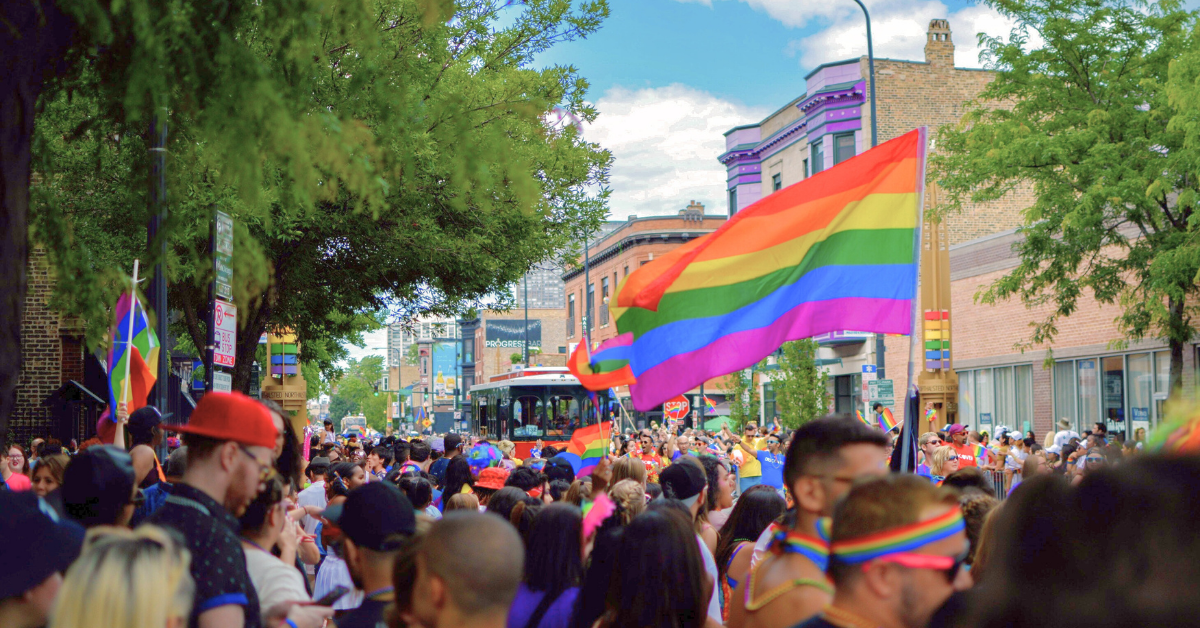
The process of coming out is one that is never-ending, and everybody’s coming out experience is different. For some, it can happen at a young age whereas for others, it can happen much later in life.
The age at which you come out as well as your environment, external support and your own internal view of yourself can drastically affect your coming out journey. We are incredibly lucky to live in a country with rights for LGBTQIA+ individuals, but this doesn’t absolve the community of having to deal with constant prejudice - as well as the need to consistently come out to those around them. This can also be referred to as “coming out” fatigue.
Where heterosexuality and being cisgender is the norm - and also what the majority of the world identifies as - it creates a specific challenge for LGBTQIA+ folk when it comes to sharing that part of their identity.
For some, they may not deal with coming out fatigue and feel incredibly confident, comfortable, and unaffected by needing to validate and tell others about their identity. But, for others - coming out over and over again can be a painful process and one that is tiring, especially if there is trauma associated with coming out or they are in an environment that doesn’t feel completely safe for them to be their true selves.
Outside of the LGBTQIA+ community, not everybody is as open and welcoming, and there is even homophobia and transphobia within the LGBTQIA+ community too.
Our own biases mean we put people into boxes
Unfortunately, there are stereotypes (as there are even with heterosexual and cisgender people) that force us to create a preconceived idea of who someone is, all the way down to their sexuality or how they identify. If someone doesn’t look, act, or speak like what we assume their identity to be - it can lead us to question or even subconsciously invalidate them, even though we have no idea who they are.
Portrayal in the media, pop culture, and social media also enforce our biases and preconceived ideas. There are many gay men who don’t fit into the stereotype of what is considered gay, and there are many lesbian women who don’t fit into the stereotype of what a lesbian should look, act, or talk like. This doesn’t invalidate who they are - but subconsciously we end up doing so without even realising.
When we look at this coupled with coming out, each individual in the LGBTQIA+ community already knows how they’re going to be received by others. For example, a feminine presenting lesbian often has to deal with individuals invalidating their sexuality when they come out or even sexualising it because they don’t fit into that person’s ideology of what a lesbian is.
For that individual, they’re hyper-aware that in some circumstances it may be better not to come out - let’s say when at a bar with friends - because they would rather not deal with the conversation and comments. That is what you can define as coming out fatigue - and this can be applied to all individuals in the LGBTQIA+ community.
How can this impact someone in the workplace?
If someone has already dealt with multiple occasions of being invalidated when coming out, they’re less likely to feel safe and confident in the workplace to bring their true, authentic selves to work. Additionally, someone may feel that it isn’t their employers' business to know their sexuality or identifiers - heterosexual people don’t need to come out as heterosexual on their first day!
“On the flip side, choosing not to advertise our queerness means having to be constantly conscious about who knows and who doesn’t, forever pondering who deserves such personal information, when to tell them, and how. Coming out is a never-ending, often daunting, sometimes devitalizing process.” - Rand Bishop, Medium
The statistics also support this (courtesy of Stonewall):
“Almost one in five LGBT staff (18%) have been the target of negative comments or conduct from work colleagues because they’re LGBT.”
“Almost one in five LGBT people (18%) who were looking for work said they were discriminated against because of their identity while trying to get a job.”
Not only can this impact people looking to work at your organisation, but it can also impact how comfortable they feel on a day-to-day basis due to how LGBTQIA+ individuals can be treated.
What can you do as an employer?
It all boils down to inclusivity and ensuring that everybody feels supported at work. It’s also important to ensure that you’re not striving for perfection with this - as it’s physically impossible to have a perfectly inclusive workforce all of the time. Your workforce is ever-changing and the demands change with them, and expecting that you’ll get things right 100% of the time, is simply not realistic.
This aim of perfection is often what paralyses organisations from making any change at all, for fear of making a mistake. The bottom line is that you should look at your organisation's culture first. How do people speak with each other, how do they interact, and do employees have a good understanding of the LGBTQIA+ community and how can they be supported in work? It’s all a work in progress.
We’ve put together a guide for employers on supporting LGBTQIA+ individuals in the workforce here.



